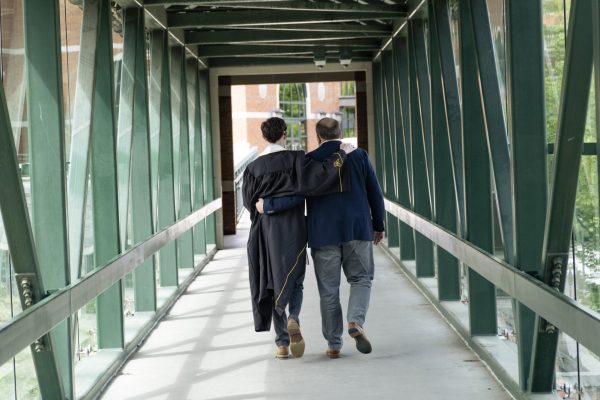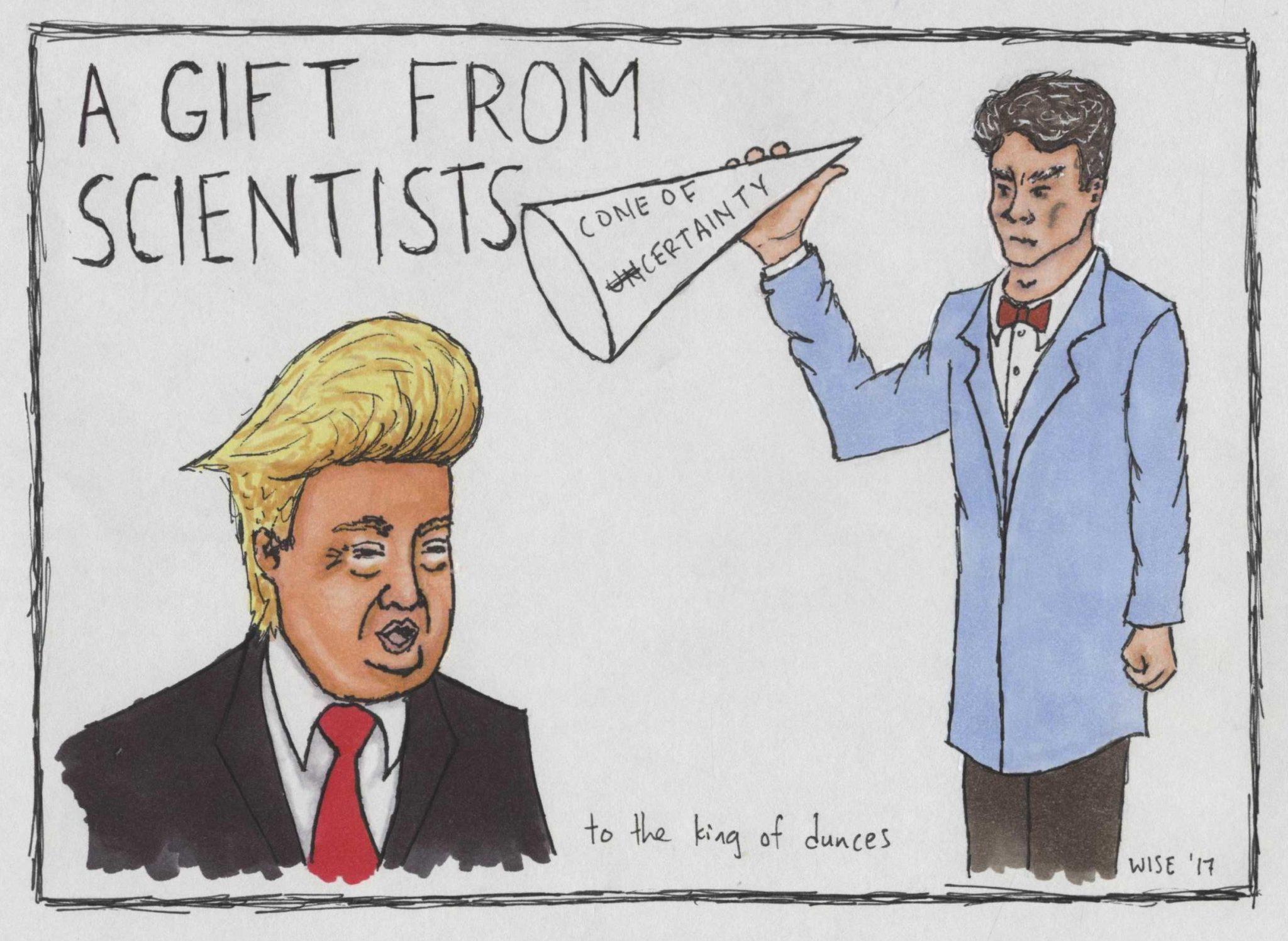Correction: The piece falsely mentions that humans are responsible for 95 percent of the global temperature increase since the 19th century. This was mis-cited, the actual statistic is that there is a greater than 95 percent probability that the global temperature increase since the 19th century was caused by humans.
Wildfires and earthquakes are ravaging the west coast and hurricanes Harvey, Irma and now Maria have devastated everything in their wake.
With such intense and widespread disasters assaulting the United States just this year, eyebrows have rightfully begun to raise towards the possible causalities.
Global warming, or “an increase in the earth’s atmospheric and oceanic temperatures widely predicted to occur due to an increase in the greenhouse effect,” according to Merriam-Webster, is the most scientifically proven causality of severity in natural disasters reported by NASA.
So could there be a correlation between more frequent and intense natural disasters and the neglect of acknowledgement towards climate change over the past 35 years?
Global warming has always been a controversial topic within the political sphere. Ninety-seven percent of liberals think global warming is occurring, but only 42 percent of conservatives think so according to Yale University, so it is not shocking that global warming is one of the most heavily debated topics in politics.
But, in the end, it boils down to the fact that is just a matter of science.
Since the 19th century, the global temperature of the Earth has been rising at unprecedented levels, and according to NASA, there is a greater than 95 percent probability that this is due to human activity.
NASA finds that carbon dioxide and other greenhouse gas emissions have caused the global temperature to rise 1.1 degrees Celsius, and most of this global warming has occurred over the last 35 years.
What does this have to do with these irregularly intense disasters, such as hurricanes?
NASA notes that the oceans have absorbed majority of this global increase in temperatures, and warmer sea temperatures lead to a greater intensity within the storms.
Daniel Caton, an astronomy professor at Appalachian State University who regularly speaks on the impact global warming has on the Earth, supplements that fact.
“The earliest climate models have predicted an increase in the intensity of storms,” Caton said. “As [the Earth] warms, you have more moisture in the air which is what drives these storms.”
In the 1970s the average amount of category four or five hurricanes was about eight to ten per year.
Currently there are approximately 18-20 category four or five hurricanes globally reported by Live Science.
If the human race continues to ignore the annual rising temperatures, the levels of intensity of future hurricanes are going to produce unrecoverable amounts of destruction.
The world is in need of a wake up call, but it is not too late to be more conscious of the environment.
“[I am] disturbed by the notion of mitigation preparing for disaster,” Caton said. “[it is key to focus on] joining the rest of the world in controlling our CO2 and burning of fossil fuels. [The state of global warming] is only going to get worse.”
Global warming is not controversial, it is not arguable, it is just disregarded.
“You believe in the Tooth Fairy or Santa Claus, you understand science, it is not a belief, it is an understanding of the evidence that there is for a phenomenon,” Caton said.
It is time to stop preparing for the end of the world when we can prevent it.
Consciousness and understandings of individual carbon footprints, to energy efficiency, or to conserving natural resources is crucial for the preservation of Earth, as well as the manageability of future hurricanes.
Kayla Smith is a freshman journalism major, from Concord, North Carolina. Follow her on Twitter at @berkleys26.












